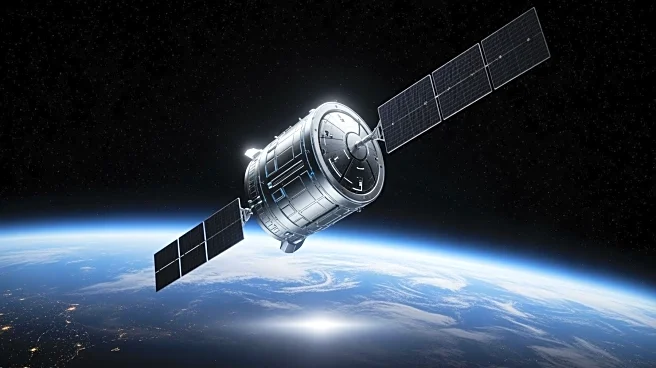What's Happening?
In a significant development for space traffic management, the China National Space Administration (CNSA) has reached out to NASA to warn of a potential collision between satellites. This marks the first instance of such direct communication from China,
indicating a shift towards more open collaboration in space operations. Historically, the US and China have had a strained relationship in space, with the US banning China from the International Space Station in 2011. The recent communication from CNSA is seen as a positive step, as it suggests a willingness to engage in dialogue to prevent satellite collisions, which are becoming increasingly likely due to the growing number of satellites in orbit.
Why It's Important?
This development is crucial as it highlights the growing need for international cooperation in space traffic management. With the rapid increase in the number of satellites, particularly from companies like SpaceX, the risk of collisions has escalated. Such incidents could lead to the Kessler Syndrome, where debris from collisions causes further collisions, creating a cascade effect. By engaging in dialogue, China and the US can work towards preventing such scenarios, which would have significant implications for global satellite operations and space sustainability. This cooperation could also pave the way for improved relations between the two countries in other areas of space exploration.
What's Next?
The communication between CNSA and NASA could lead to more structured protocols for satellite collision avoidance. However, the Wolf Amendment, which restricts NASA's collaboration with China due to national security concerns, remains a barrier. Future discussions may focus on how to navigate these restrictions while ensuring the safety and sustainability of space operations. The international community may also push for more comprehensive agreements on space traffic management to address the increasing congestion in low Earth orbit.
Beyond the Headlines
The engagement between CNSA and NASA could have broader implications for international space policy. It may encourage other nations to adopt similar collaborative approaches, fostering a more cooperative global space environment. Additionally, this development could influence discussions on space governance, particularly regarding the management of space debris and the establishment of international norms for satellite operations.















